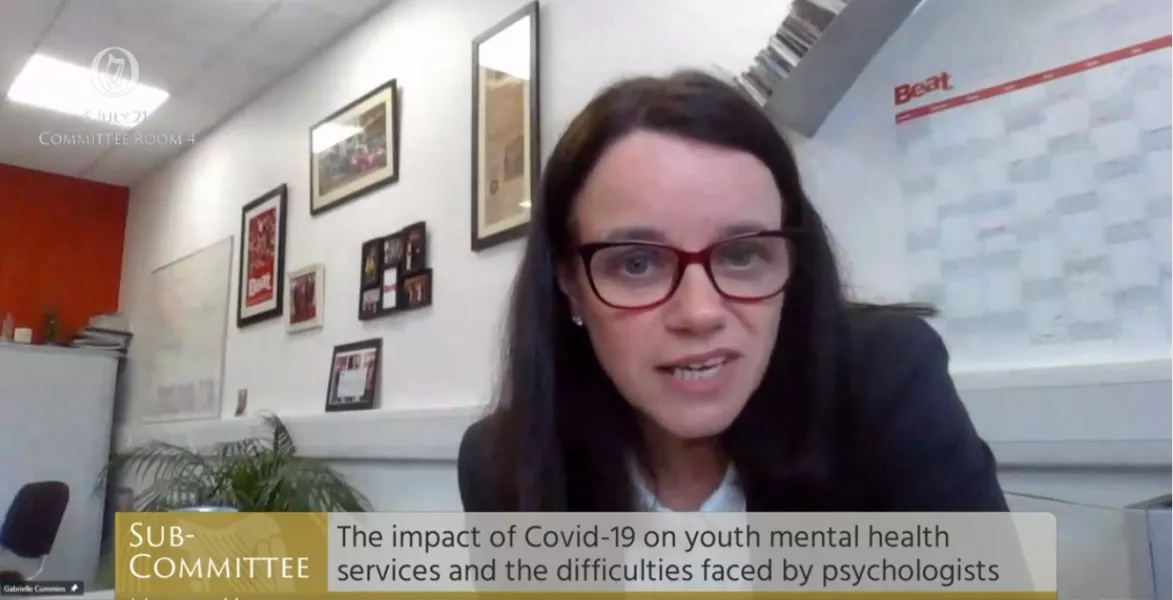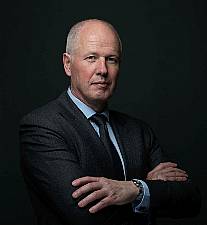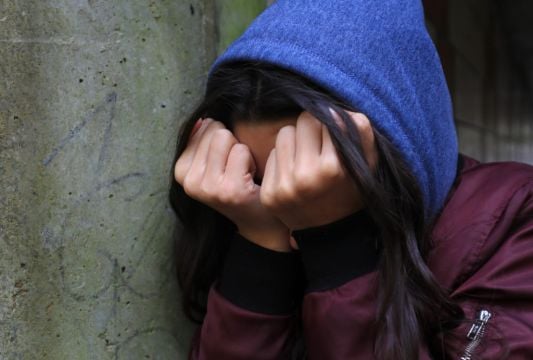More than 80% of young people said their mental health has been negatively impacted by the pandemic and more than two-thirds have not sought help for their issues, a survey has found.
It also found that seven out of 10 young people believe the Government does not understand their age group.
The research, carried out by local radio station Beat 102-103, was presented to the Oireachtas Sub-Committee on Mental Health.
The My So-Called Covid Life study, conducted by research company Spark, looked at how young people are coping with pandemic life and their fears for the future.
Beat chief executive/programme director Gabrielle Cummins said: “Over the last year, regional radio station Beat 102-103 has noticed an increase in communication from young people, verbalising their mental health struggles.
“The findings are grim. Eighty-three per cent of respondents said their mental health has been negatively impacted by the pandemic, but worryingly 73 per cent who were affected mentally said they had yet to avail of any support services to help them better cope with their mental health concerns.
“Seven out of 10 young people surveyed believe the Government does not understand their age group.
“They feel they are not being heard. The research indicates a clear disconnect between Government and this demographic, with nearly a quarter of them revealing they either didn’t know who the current Taoiseach of Ireland is, or they think it’s Tánaiste Leo Varadkar.”

Labour Senator Annie Hoey said young people have got “such a bad rap” throughout the pandemic, adding that there is a collectivist belief that young people have to put up with it.
Ms Cummins said they are using funding to create projects for young people to help them speak about the effects of lockdown restrictions.
“We have to communicate with them and inspire them to tell their stories in a positive way and give them uplifting support rather than bashing them,” she added.
Psychologists
Meanwhile, a campaign group for psychologists has said that current employment practices within the sector are “unethical”.
CARE founder Marina Dillon said the practices within the sector are “unjust, discriminatory” and in need of reform.
CARE for psychologists in Ireland raises awareness of the current working practices for assistant psychologists, graduate psychologists and those who aspire to work as clinical/counselling psychologists.
“Given the current climate in Ireland, with incredibly long waiting lists for child and adult mental health services as well as assessments for special needs, we propose that the expertise and experience of our psychology graduate population be utilised to help address this crisis,” Ms Dillon told the committee.
“State-run agencies, including the HSE, advertise to fill unpaid assistant psychology (AP) roles, requiring years of experience and a minimum Masters level education to even apply.
“Due to the requirement to often work for free, many psychology graduates are ultimately unable to pursue their chosen career as they cannot fund years of such experience, leading to an elitism within the sector.”
CARE PhD researcher Siobhan Thomas said: “Clinical psychologists has become so competitive that many people have to move location to find experience or work for free to get experience.
“This is penalising any diversity, particularly socio-economic diversity. It is pricing out people who are working class or cannot afford to work for free.
“It is penalising people who have mental health difficulties.”
Ms Dillon added: “I would nearly go as far as saying it’s unethical and we should not be pushed to our limits and we are.

“I believe it has a negative knock-on effect on clients.”
She added: “The financial barriers is the main reason driving the elitism.
“Unless you are from a comfortable background or can afford to take on substantial debt, you are very hard-pressed to get on the career ladder.”







